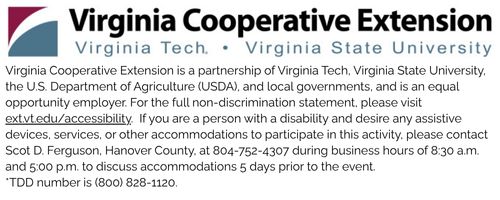Here you will find practical, science-based strategies to help you cultivate a thriving garden while minimizing pest problems and supporting beneficial wildlife. You’ll learn how to assess your soil, choose the right plants for your space, and create growing conditions that naturally discourage pests. We offer tips for improving plant health, encouraging pollinators and predatory insects, and managing diseases through sanitation and seasonal care.
You’ll also find guidance on wildlife interactions, including legal considerations for snakes, and links to pest-specific resources to help you identify and respond to common garden challenges.
Create cultural conditions that benefit your plants.
- Know plants you have in the yard
- Get a soil test
- Learn optimal conditions for your plants (pH, light, and water requirements)
- When planting choose the right plant for the right place
- Avoid insecticides to encourage beneficial predatory insects
- Encourage beneficial insects with small flowered native plants
Create cultural conditions that make it less desirable for pests
- Increase space between plants (especially trees and shrubs) for better air circulation
- In garden and perennial beds, improve soil with layers of compost each year
- In vegetable gardens, rotate plants so that plants in the same family are not planted in the same spot every year
- Vary planting and harvesting schedules for vegetables to take advantage of the time when the pest is less active
- Follow soil test recommendations; don’t over-fertilize
- Reduce the amount of monoculture, the cultivation of a single crop or organism (ex: Fescue grass lawn)
- Follow Virginia Tech lawn care recommendations
Practice good sanitation
- Clean up fallen leaves from diseased plants, bag and dispose of in a landfill
- Prune out diseased branches and dispose properly
- Sanitize tools after each cut with a bleach solution (1 part bleach to 9 parts water) or use alcohol (70% or greater)
- Wear disposable gloves and wash clothing when working around plants known to be infected with easily spread diseases such as boxwood blight.
- Remove dead plant material from vegetable gardens where insects can overwinter
Catch pest problems early before they become harder to control
- Scout yard regularly for plants that don’t look normal or healthy
- Examine plants for insects and disease when buying
- Identify problems and send photos or bring samples to the Hanover Cooperative Extension. You can reach us at 804-752-4306 or [email protected]
- Follow the recommendations in the Virginia Tech Pest Management Guide
- If necessary, choose pesticides that cause the least harm to other organisms
Tips provided by Master Gardener Emily Gianfortoni as part of a Home Gardening Series handout
Wildlife Pests
Snakes of Virginia
Relocation and Rehabilitation Contacts
It is illegal to kill snakes in Virginia. If you need to remove a snake you can call
one of the rehabilitators listed below.
Rehabber Listings: https://dwr.virginia.gov/wildlife/injured/rehabilitators/ Or search for DWR Wildlife Rehab. Please remember it’s illegal to keep or care for orphaned or injured wildlife
unless you are a licensed wildlife rehabilitator.
More Information on Pests
- Spotted Lanternfly Identification and Reporting in Virginia
- Squash the Squash Bugs – best ways to deal with this pest
- Cross Striped Cabbageworm – dealing with this garden pest
- Relationship between Plants and Pollinators – Plants have a unique relationship with the insects that pollinate them.
- Tick Identification – Learn more about how to identify ticks and what diseases they carry.
- Boxwood Blight Information – Series of videos addressing boxwood blight.
- Pest Management – The appearance and control of pests can vary from month to month. See the charts for the months of April, May, June and July.
- Neem Oil – Need oil can be an organics solution to pest management.


